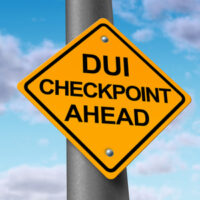Five Ways to Overturn a DUI Checkpoint Arrest

In 1968, the Supreme Court initially ruled that officers must have reasonable suspicion of criminal activity before they detain motorists. Generally, that reasonable suspicion is a traffic violation, such as speeding or making an illegal turn. Recently, the Supremes have watered down this rule, but it remains on the books.
DUI roadblocks are an exception to the reasonable suspicion rule. Police officers can detain motorists at checkpoints simply based on their position in a line of vehicles. However, this power is not absolute, as outlined below.
If a Port St. Lucie criminal defense lawyer shows the stop was illegal, anything that happened after the stop, including the defendant’s performance on field sobriety tests and BAC level, is inadmissible. As a result, the prosecutor’s case collapses like a house of cards.
Personal Rights Violation
DUI checkpoints in Florida allow officers to circumvent the Fourth Amendment’s warrant requirement. These roadblocks do not allow officers to circumvent the Fifth Amendment’s right to remain silent.
Motorists must answer basic “name, rank, and serial number” questions. They must also produce certain documents, such as a drivers’ license and proof of insurance, for inspection. However, they need not answer any other questions, such as “Where are you heading tonight?” In fact, they do not even have to roll down their windows and interact with officers.
No Supervisor Authority
Only police supervisors have the authority to establish DUI roadblocks. Desk sergeants and patrol corporals are not supervisors. Captains and lieutenants are probably not supervisors either. Only elected officials or people who are directly responsible to elected officials are supervisors in Florida.
Unreasonable Duration or Place
DUI checkpoints must have certain start times and certain end times. They cannot remain in operation until attending officers hit a certain ticket or arrest quota. There is no hard-and-fast rule about a reasonable time, but generally, anything longer than about two or three hours is too long.
Similarly, there is no black-letter rule for what constitutes a reasonable place. However, the location must put safety first, and not law enforcement first. The roadblock cannot be on a freeway exit ramp. Additionally, the checkpoint cannot be in any area of town. The roadblock must be in an area where there are a high number of drunk drivers.
Field Officer Discretion
For the most part, every operational detail must be set in stone. The supervisor cannot authorize a checkpoint, provide a policy outline, and let field officers fill in the blanks.
No Neutral Detention Policy
The only major exception to the no-discretion rule is in the manner of pulling over vehicles. The formula must always be neutral, such as every third or fourth vehicle. Officers cannot wave some people through and stop others who do not “look right.”
Once traffic backs up, field officers can change the detention formula to every fourth or fifth vehicle. If motorists must wait more than about twenty seconds, the delay is unconstitutionally long, per the “unreasonable time” standard mentioned above.
Work With a Tough Lawyer
DUI checkpoints must meet strict requirements, or they are illegal in Florida. For a free consultation with an experienced Port St. Lucie criminal attorney, contact Eighmie Law Firm, P.A. Convenient payment plans are available.
https://www.eighmielawfirm.com/overcoming-the-field-sobriety-tests-in-a-dui/


